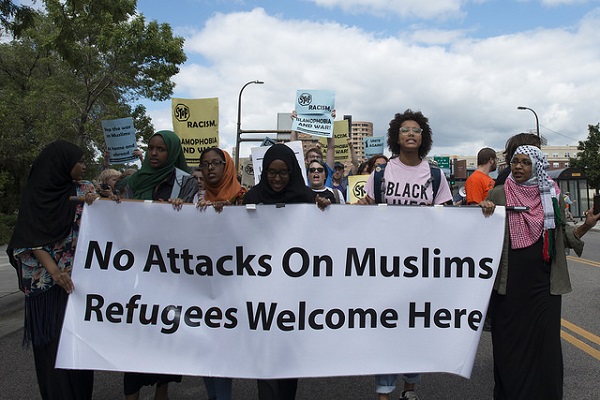
Hawaii and Twitter are Protesting the New Travel Ban
- By Nathan Glover --
- 03 Jul 2017 --

The two entities were among the first to openly protest the travel ban, but many more are also against it.
The travel ban put in place by the Trump administration was once again challenged by the state of Hawaii.[/tweetit] This happened after the United States Supreme Court permitted an edited version of restrictions to be operational. The Supreme Court ruled travelers from six countries- all Muslim-dominated- could be forbidden to enter the U.S. Exceptions can be made only for people who have “bona fide relationship” with an entity or a person residing in the U.S. The present U.S. Government has restricted such relationships to parents, daughters-in-law, sons-in-law, spouses, sons, and fiancés of U.S. residents. Siblings are also allowed to gain entry.
Hawaii, Twitter, Protest New Travel Ban[/tweetthis]
The National Iranian American Council, protesting against such new guidelines, started the #grandparentsnotterrorists hashtag in social media. It wants to show how this ban can hurt families. According to Shayan Modarres, the group's legal counsel, the President of the U.S. should protect American families and not separate family members. He added to the website of the advocacy group that this ban is inhumane and does not bolster U.S. security. It only creates divisions by making a few Americans to second class citizens only due to their ancestry. The National Iranian American Council has encouraged individuals from the six affected nations to tweet their grandparents' photos as a protest.
Hawaii has asked to expand this definition, claiming that grandparents, uncles, aunts, and grandchildren of U.S. residents should be permitted to enter. It has since filed an emergency injunction, asking a federal judge to clearly state meaning of the term “bona fide relationships.”
Trump's Muslim Ban is still an offense to our nation's laws and conscience. #GrandparentsNotTerrorists pic.twitter.com/4636DcEBr8
— Vahid Arefi (@the_vahid) June 30, 2017
The state of Hawaii was the first state to oppose any kind of travel ban to the United States. It challenged the Trump government in March when it challenged the then revised travel ban. The order during that time limited visitors from Yemen, Syria, Sudan, Iran, Somalia, and Libya to visit the U.S. for a period of 90 days. The U.S. refugee program was suspended for a period of 120 days.
Douglas Chin, the Hawaii Attorney General, equated the Trump administration order during that time as “Muslim ban.” This opinion was the same as a federal judge, who immediately blocked the ban. The decision was upheld by 9th Circuit Court of Appeals. According to Chin, the statements made by the administration threatened the U.S. Government's fundamental principles.
The Trump administration condemned the ruling, with President Trump pledging that the issue will be taken to the Supreme Court. Things got so far that Hawaii was disparagingly referred to as “an island in the Pacific” by Jeff Sessions, the U.S. Attorney General.



















